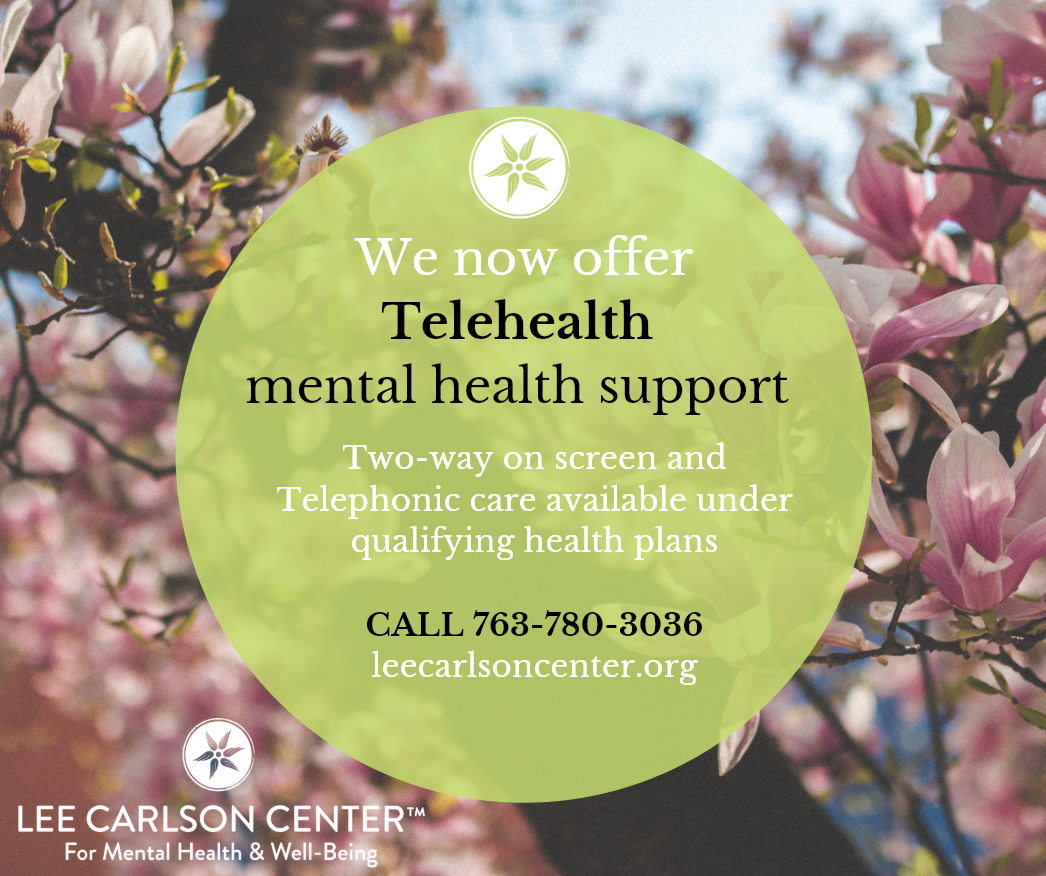Beginning late last week Lee Carlson Center began moving all mental health programs and services virtual via two-way screen and telephonic means as a result of Covid19. Regarding the change Rob Edwards, CEO of Lee Carlson Center said, “This move will help clients and staff stay safe during this community health crisis.” He said that the agency’s team of therapists is trained and equipped to take new referrals and support anyone who reaches out for support.
The agency has a team of dedicated Engagement Specialist’s trained and ready to help callers use their health care benefits to access a number of alternatives to face to face in person care. The intake line for all programs is one easy number to remember, 763-780-3036. “We are actually reaching out to all our current clients directly to develop a plan for continued care with them,” said Edwards.
The agency has already seen commercial payers and state health plans be open to flexible treatment delivery. Some pending decisions at a state level may even open options for telephonic care under the telehealth definition.
Edwards said that the Bridgeview Drop-in center located in Fridley serving adults with serious and persistent mental illness is closed for drop-in now but is keeping scheduled appointments including therapy and psychiatry, accepting new members and launching virtual drop-in center services including online support groups and a mobile meals program. “We are also seeking partners to help fund these innovative care delivery systems,” said Edwards. “We can scale these programs in the community based on the financial resources that are available,” he said.
Lee Carlson Center is also developing basically furnished clean and sanitized Telehealth stations at it’s 4 treatment sites so that clients without technology have the option to tap in to a therapist using technology at those locations. Once these are established Lee Carlson Center will do everything it can to maintain access throughout the community health crisis. “We really hope to develop ways to connect with clients in the comfort of their own homes but we are also aware that some will not have the means to access our services in a way that works for them. We will continue to be creative in finding solutions to overcome obstacles to delivering client care,” Edwards said.
Lee Carlson Center typically has the capacity to deliver 1000-1500 client encounter sessions per week.
To support the agency’s work visit www.leecarlsoncenter.org/give or email info@leecarlsonenter.org

